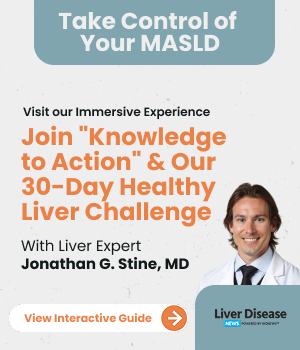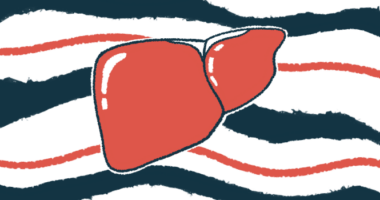Skin care tips for people with liver disease
Last updated March 31, 2025, by Roslyn Marano

Living with liver disease can affect various aspects of your health, including your skin.
Conditions like liver cirrhosis and chronic hepatitis may cause dryness, pruritus, or itchy skin, and sensitivity. You may also notice changes in the appearance of blood vessels.
Following a well-planned skincare routine may help alleviate these issues and improve your quality of life. The following are practical tips for maintaining healthy skin while managing skin concerns from liver disease.
Prioritize hydration
Impaired liver function can disrupt bile production and flow. When bile salts — which are made of bile acids — build up in the bloodstream, dry skin, itching, and inflammation can occur.
Staying hydrated helps maintain body moisture and supports healthy bile ducts.
Drinking six to eight glasses of fluids (preferably water) daily, limiting dehydrating beverages such as alcohol and caffeine, and incorporating hydrating foods such as cucumbers, watermelon, and leafy greens into your diet can help you stay hydrated.
Moisturize regularly
Dry skin is a common concern for those with liver disease. It can result from bile acid disruptions, medication side effects, or nutrient deficiencies. Dehydration and toxin buildup may also contribute, making the skin more prone to irritation and discomfort.
Regular moisturizing helps protect the skin’s barrier and reduces irritation. It may lessen discomfort and the risk of cracking and infection.
When shopping for moisturizers, look for hydrating ingredients like ceramides and hyaluronic acid.
Choose skin-friendly products
Skin-friendly products can make a big difference in maintaining comfort and reducing irritation from liver-related skin symptoms.
Avoid products with harsh additives, such as alcohol and artificial fragrances. These may irritate your skin and worsen your symptoms.
Choosing hypoallergenic products and those that are noncomedogenic, or formulated to minimize pore clogging, may also minimize the risk of skin flare-ups.
Consult your care team before trying a new skincare product to ensure it will not interact with your specific condition or any medications you’re taking.
Be gentle with your skin
Treat your skin with care to avoid worsening sensitivity or dryness:
- Use a mild, fragrance-free cleanser.
- Avoid abrasive scrubs and exfoliants.
- Pat your skin dry with a soft towel instead of rubbing it.
- Take lukewarm showers instead of hot ones.
When trying a new product, start with a patch test: Apply a small amount of the product to your skin, wait 24 hours, and then check for irritation. Liver disease may make your skin more reactive, so gradually trying new products may help prevent flare-ups.
Remember, improving your skin’s health takes time. Dryness and irritation will not disappear overnight, but consistent care can make a difference. Be patient with the process, and just as important, be patient with yourself.
Sun protection is essential
Certain liver diseases may increase skin sensitivity in some people.
Some medications that help manage liver disease may also make the skin more sensitive to sunlight. These medicines can increase the risk of sunburn, and, in some cases, skin cancer.
The use of daily sun protection may help prevent skin damage and better manage visible skin changes, including those commonly associated with liver conditions. Such manifestations may appear as spider angiomas — small, red dilated blood vessels that resemble the legs of a spider — paper money skin, and palmar erythema, or a reddening of the palms. Paper money skin is marked by small, scattered blood vessels that resemble the silk threads on dollar bills.
To protect your skin, apply broad-spectrum sunscreen with SPF 30 or higher daily, wear sun-protective clothing, hats (ideally wide-brimmed), and sunglasses, and seek shade when outdoors.
Focus on diet and nutrition for skin health
A nutrient-rich diet supports liver function and skin health. A healthy liver diet should comprise fiber-rich foods, lean proteins, healthy fats, low-fat dairy, and water. Fried foods, sugar, red meat, alcohol, and raw shellfish should be limited.
Certain vitamins and fatty acids can help maintain skin elasticity and reduce inflammation, and are important to incorporate into your diet. These include:
- vitamin C, typically found in citrus fruits and bell peppers
- vitamin E, usually found in nuts and seeds
- omega-3 fatty acids, which are found in fatty fish such as salmon.
A diet rich in antioxidants may help manage complications associated with nonalcoholic fatty liver disease and primary biliary cirrhosis by supporting liver health and promoting healing.
Manage stress for clearer skin
Stress can hurt skin and liver function by triggering inflammation.
Trying stress management techniques can help calm the mind, ease tension, and support overall well-being. Some practices that may be helpful are:
- practicing mindfulness
- meditation
- yoga
- walking
- deep breathing.
Consult with a dermatologist
Professional guidance is essential for persistent or worsening skin issues, as some skin issues may be signs of liver disease.
A dermatologist familiar with skin concerns brought on by liver disease may recommend treatments such as prescription moisturizers, anti-itch creams, or therapies that target skin inflammation.
However, sudden changes — like increased itching, darkening skin, or persistent rashes — may be a sign of disease progression, such as cirrhosis or liver failure, rather than an isolated skin issue.
In these cases, it is important to consult your doctor to address potential underlying concerns, especially if you have had or are having a liver transplant or are being monitored for early diagnosis of liver disease.
Liver Disease News is strictly a news and information website about the disease. It does not provide medical advice, diagnosis, or treatment. This content is not intended to be a substitute for professional medical advice, diagnosis, or treatment. Always seek the advice of your physician or other qualified health provider with any questions you may have regarding a medical condition. Never disregard professional medical advice or delay in seeking it because of something you have read on this website.
Recent Posts
- Stress management skills are a big part of my healthcare plan
- BARE holds Live and Let Live(r) fundraising campaign
- Antibody brings proteins together to tame autoimmune hepatitis
- Imbalance of certain fatty molecules may signal disease severity in PSC
- UDCA plus phenobarbital safe, effective for infant cholestasis






